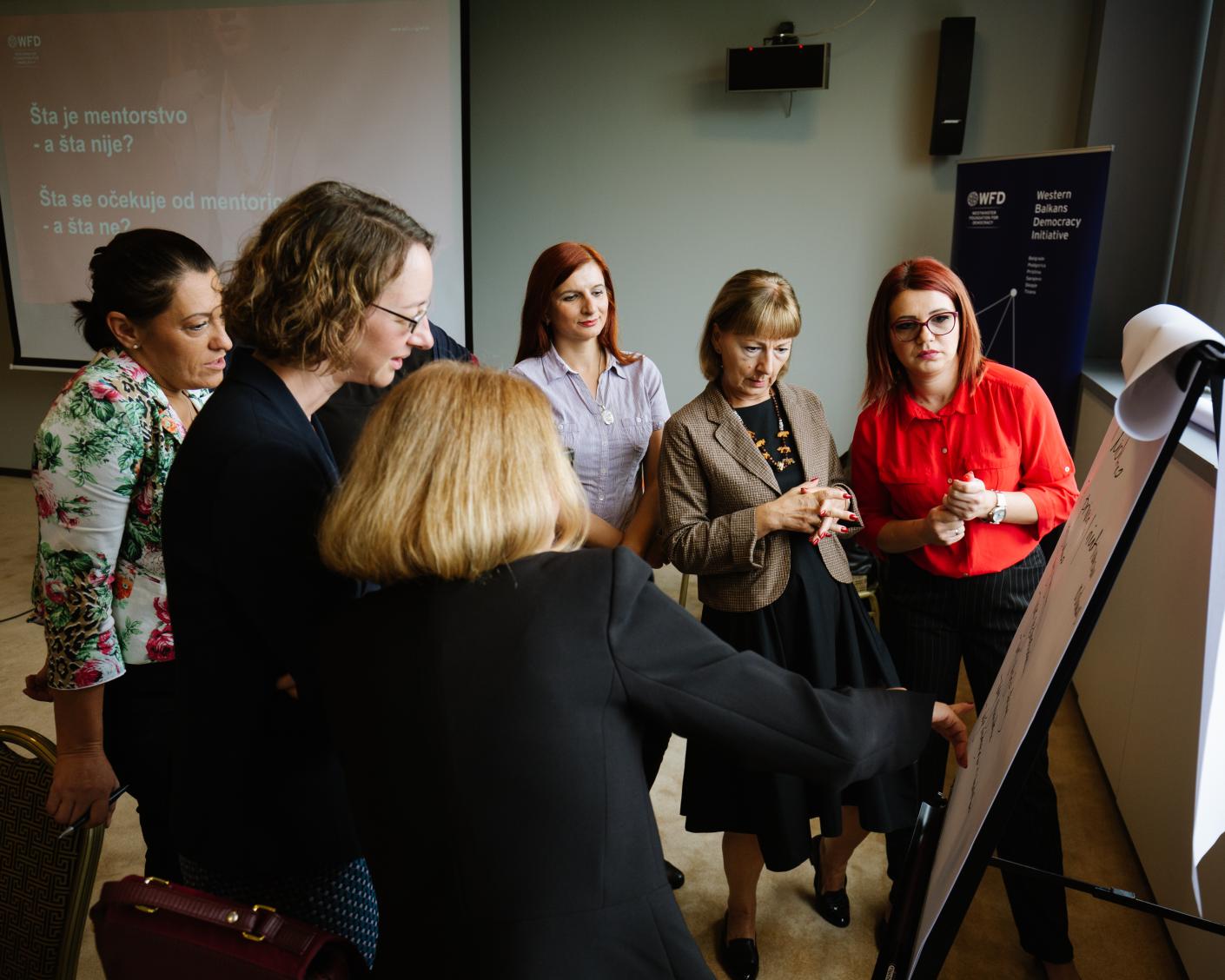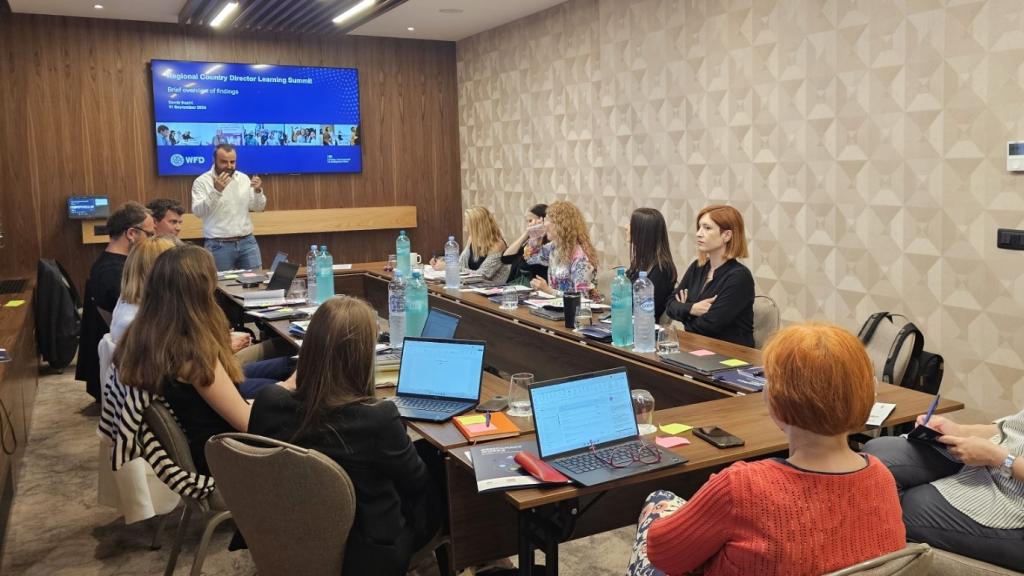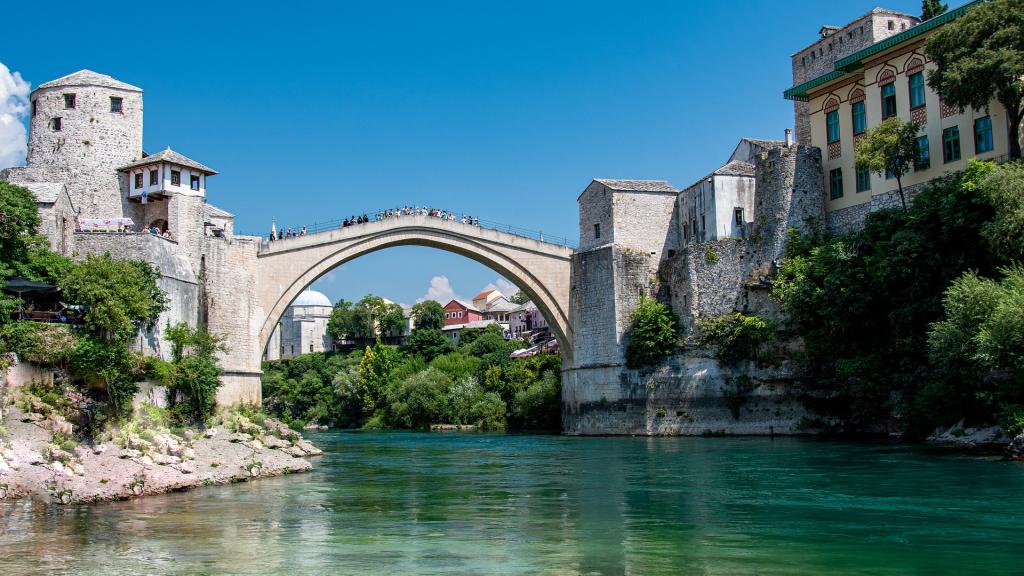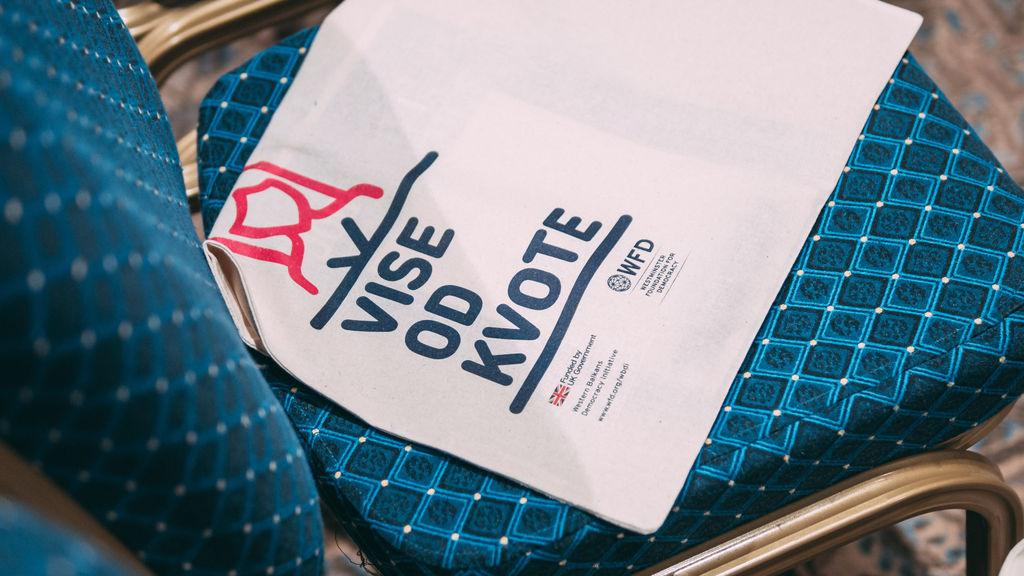Whether aiming to have improved air quality for children at school, equal maternity benefits or abolished taxes for first business registration, we bring decision-makers together across ethnic and party divides to collaborate for solutions.
Throughout our work, we have witnessed that women leaders are more likely to prioritise citizens over personal and party interests. We, therefore, continuously promote women’s political leadership, supporting women politicians and addressing systemic barriers to their equal participation.
As an underlying principle of all our work, we are dedicated to mainstreaming the highest standards of integrity in political work and working with political actors to put values and ethics back to the core of politics.
Political context
Bosnia and Herzegovina has a unique governance structure established under the 1995 Dayton Peace Agreement, which ended the Bosnian War. The country consists of two entities, one of which is further fragmented into cantons, along with a self-governing district. This decentralized system reflects the multi-ethnic composition of Bosniaks, Croats, and Serbs. BiH operates as a parliamentary democracy and aspires to European Union membership, working to align its policies with EU standards. While peace has been established and there are grounds for stability, challenges remain in fully realising its potential to build stable, accountable and diverse governance.
Key areas of work
Current programmes
Tackling hate speech in political discourse
Political discourse in Bosnia and Herzegovina is dominated by inflammatory rhetoric, divisive and derogatory narratives, generated by politicians who exploit it for their self-interests. In a transitional country such as BiH, where democracy is exercised selectively and consequences of war still visible, the widespread use of aggressive language and war-mongering fuels the fears of violence, deepens the political polarisation and destroys social cohesion.
To decrease hateful and divisive rhetoric, we are working with political parties to clarify and promote the standards of acceptable political behaviour. We are strengthening and networking moderate political voices who carry uniting narratives and advocate against hate speech and divisive language. We are also working to lessen and discourage destructive rhetoric by creating spaces for cross-party collaboration around common interests and causes which unify political actors and citizens across different political backgrounds and affiliations.
Completed programmes
More than a Quota: advancing women’s political participation in BiH
Turning the tide on youth unemployment
Promoting women in politics in BiH
Selected key results

WFD’s efforts to empower women in politics contributed to an increase of women in the local government, with 45% of women candidates from its programme elected in 2020.

Women’s competitiveness and influence in politics improved, with more women leading electoral lists in the 2020 and 2022 elections, and major parties increasing women in top positions and governing bodies.
Our flagship mentoring programme in BiH empowered women to drive impactful policy changes like introducing scholarships for children with disabilities, grants for business digitalization, pollution reduction, and zero-tolerance on sexual harassment policies
WFD supported the adoption of a new Code of Conduct by the Parliament of the Federation of Bosnia and Herzegovina, establishing ethical standards and sanctions for sexual harassment and gender-based violence, creating a safer environment for women MPs and influencing similar codes in municipalities across the country.
Hate speech and sexist behaviour by political members were sanctioned within the political party based on a Code of Conduct adopted with the support of WFD through our programme on tackling hate speech and divisive narratives.

Our programme provided 2024 local elections candidates with capacities to promote constructive, positive debate and messages, while avoiding ethnic divisions that could incite hate. 60% of the participants in our program won mandates, demonstrating that non-divisive rhetoric resonates with voters.

WFD established an informal cross-party network in the Parliament of the Federation of BiH to address youth unemployment and brain drain, facilitating regular consultations with experts, youth organizations, and the business community to develop inclusive policy solutions.

WFD facilitated collaboration between CSOs and decision-makers, giving young people direct access to decision-makers and a voice in youth-related discussions.
Latest news
Contact us
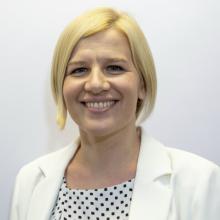
Nermina Voloder
Hamze Hume 2
71000 Sarajevo
Bosnia & Herzegovina
